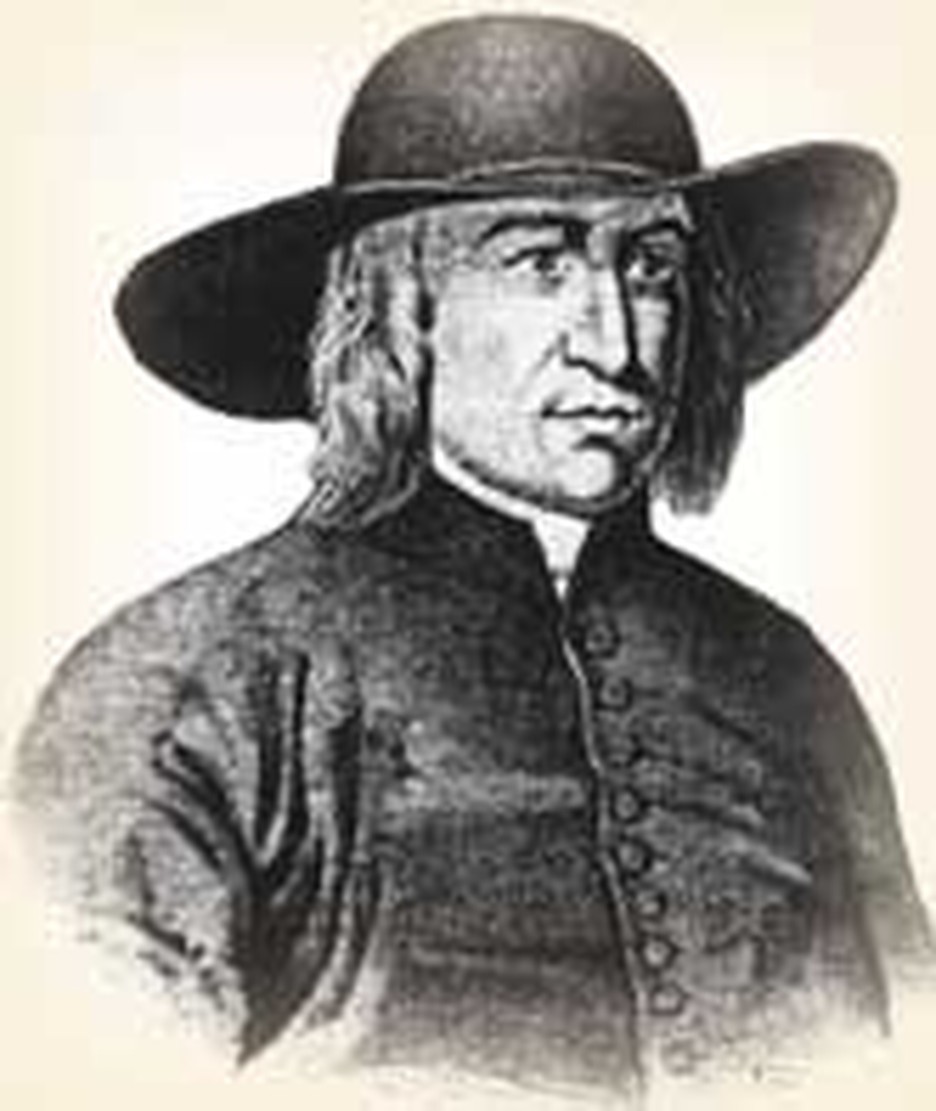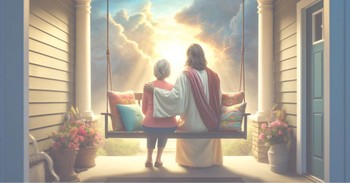
"Whoever won't drink pays!"
The young men were taking in a fair. George Fox had gone in with them to order a jug of beer. He was thirsty and in 1643 no one thought it wrong for teens to drink. They were all Christian lads. "I, being thirsty, went in with them, for I loved any who had a sense of good, or that sought after the Lord," wrote George later.
But, "When we had drunk a glass apiece, they began to drink healths, and called for more drink..." George was upset that youths who claimed to be Christian would challenge each other to a drinking bout. Even non- Christians had never suggested such a thing to him.
He got up, took a small coin from his pocket and laid it on the table, saying, "If that's the way its going to be, I'm going."
Significant results came from that drinking bout. George went home when his business was done. But the incident troubled him so much that he didn't go to bed that night, but walked up and down, praying and crying to the Lord, "who said unto me, 'You see how young people go together into frivolity, and old people into the earth; you must leave all, young and old, keep out of all, and be as a stranger unto all.'"
That was the spiritual crisis of George Fox's life. He left home and wandered alone, seeking spiritual answers. As he meditated on scripture, insights came to him. He saw that only those who are actually born of God are Christians. The Lord could and would teach any man who belonged to him. God did not dwell in churches made by men but in individual hearts.
Conversing with those who were thought to be holy, investigating claims and cults, immersing himself in Bible reading and prayer, he reached the conclusion that no one had answers for his inner unhappiness. The majority of religious leaders seemed to him to live in darkness and sin. He described one as a hollow cask. "When all my hopes in them and in all men were gone, so that I had nothing outwardly to help me, nor could I tell what to do, then, oh, then, I heard a voice which said, 'There is one, even Christ Jesus, that can speak to thy condition'; and when I heard it, my heart did leap for joy." George learned to rely on inner illumination from the Lord, who would direct him to the work he was to do in each place he went. He formed the Society of Friends (Quakers). Acting according to their consciences, they exercised a profound influence for good on the world.
For daring to be different, George suffered at least six imprisonments. However, he won converts among fellow prisoners and the jailors. But he also testified before public figures like Oliver Cromwell.
George Fox died in 1690. Penn says, "He had the comfort of a short illness, and the blessing of a clear sense to the last; and we may truly say with a man of God of old, that 'being dead, he yet speaketh'; and though absent in body, he is present in Spirit..."
Resources:
- "Fox, George." Dictionary of National Biography.
- Fox, George. The Journal of George Fox.







